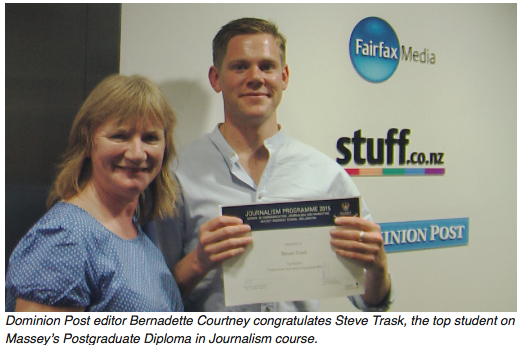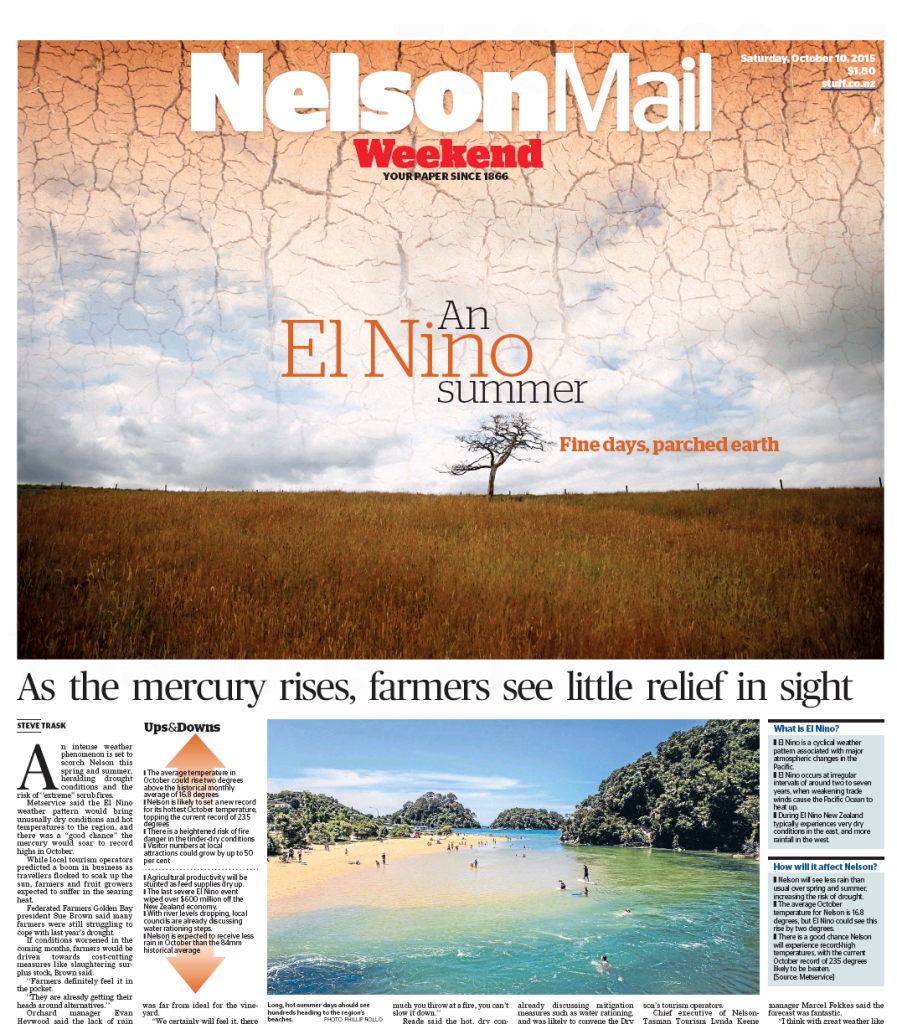It’s been a big year for the SMC’s Science Journalism Fellow Steven Trask, who not only finished his postgraduate journalism diploma at Massey University as the top student, but has picked up a job working for the UK’s Daily Mail.
 Steven spent the year putting his first class Honours science degree to good use as he worked on a wide range of science-related topics, including a front page feature for the Nelson Mail on the impacts of El Nino.
Steven spent the year putting his first class Honours science degree to good use as he worked on a wide range of science-related topics, including a front page feature for the Nelson Mail on the impacts of El Nino.
Steven will spend time at the Daily Mail‘s Australian and English offices before taking up a reporting job as part of the Mail‘s Australian bureau in Sydney.
“In all my years of presenting this award I have never known a student go straight from journalism school to that,” Dominion Post editor Bernadette Courtney remarked as she presented Steven the top graduate award, which comes with $1,000 in prize money and awards the student with the highest overall grades on the course.
Steven even found time to foster his sports reporting, taking out the Brian F O’Brien Memorial Prize in Sports Journalism in the process.
“It was great to come out of the course straight into a job,” said Steven.
“When the Mail interviewed me they asked what I did on the course. I said that, after a few lectures, we were sent out to find news.”
While work on the Daily Mail will see Steven cut his teeth as a general reporter, Steven’s passion for science-related subjects remains undiminished and he hopes to tackle science and health related stories where possible, an aim his new editors are keen to support.
A University of Otago graduate in genetics, Steven spent parts of the year on internships and a spell researching and writing science stories at the Science Media Centre.
His Nelson Mail internship saw him undertake a special on the impacts El Nino are likely to bring to the environment and to farmers over the summer. Other stories completed during the year focused on innovation and drug testing.
Science Journalism Fellowship

The SMC’s Science Journalism Fellowship aims to help a person with a science background undertake journalism training with a view to finding work in the New Zealand media.
While there are few full-time science reporters working in New Zealand, appetite for science-related stories in consumer affairs, health, environment, technology, weather and agriculture is strong.
“This Fellowship attracts a strong group of applicants each year,” says Science Media Centre Director, Peter Griffin.
“They are people keen to apply their scientific knowledge to communicating science to a wide audience. We want to help them do that.”
The Science Journalism Fellowship will assist a student with a science degree who is seeking to undertake a post-graduate diploma in journalism at an approved New Zealand journalism school in 2016. The Fellowship is valued at $2,000 and open to applicants to post graduate journalism qualifications offered at AUT University, Massey University and Canterbury University.
Full details about the Fellowship are available here. Applications are now open and close on January 20, 2016.
A few of Steven’s science-related stories
- Idealog: 100 mathematicians, $36,000 and six real-world problems
- Idealog: Restaurant robots
- Stuff: Call to legalise pill testing
- Dominion Post: Deadly chemicals found in illegal drugs